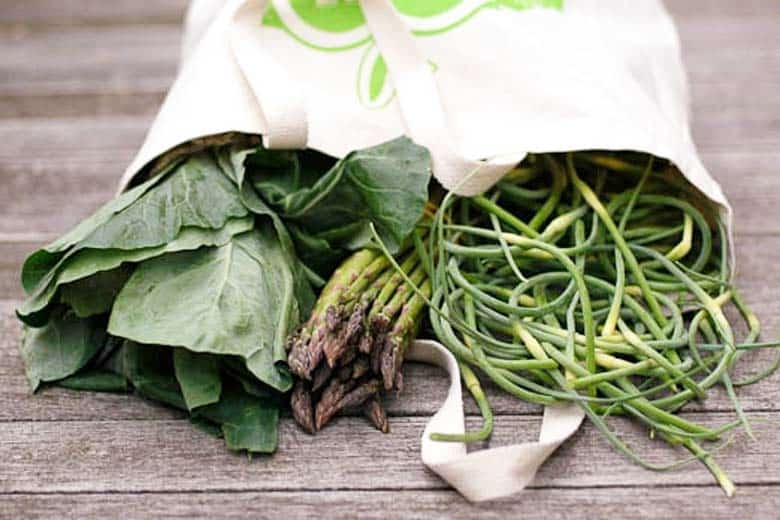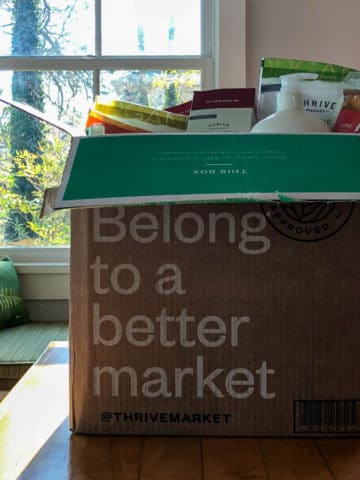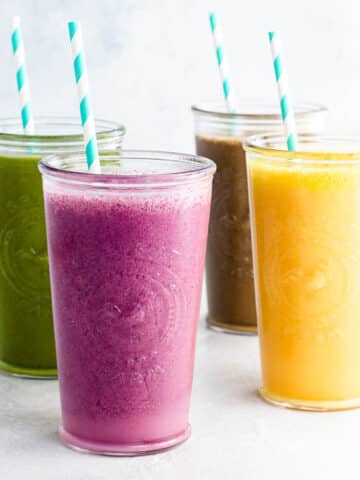The best part of the farmers' market is getting to know the farmers. You'll learn so much more than you think.

How to win at the farmers' market
Anyone can bring home a bunch of beets from their local farmers' market—and there, as elsewhere, showing up is half the battle. But a farmers' market is an embarrassment of riches in terms of fresh foods, artisanal expertise, and the opportunity to make a meaningful connection with the source of our sustenance. Make the most of your experience with these 10 simple tips, and share your own advice in the comments.
1. Don't be shy
It's no secret that we're huge fans of farmers. Spend a few minutes chatting it up at your local farmers' market, and you will be, too. It takes tremendous dedication to both science and art to turn out beautiful produce on a small farm, and the time you spend inquiring about the results of that dedication can yield both useful information and infectious enthusiasm.
A huge benefit of farmers' markets is your ability to look the farmer in the eye and ask anything you want about how the food was grown. That's a rare opportunity in our supermarket culture. Go for it. Ask about a food you don't recognize, how to cook it, and whether it's coming in or heading out of season. Find out what the farmer expects to bring to market next week so you can start to plan ahead. Learn all you can about the farmer's growing practices, and make sure you know who you're buying from. Some markets require that farmers themselves sell their wares, but not all do.
2. Find out why it's not certified organic
The fact that produce is not labeled organic doesn't necessarily mean it's swimming in pesticides or is a qualified member of the Dirty Dozen. Sometimes it's quite the opposite.
Some of the best farms, where a single farmer can lovingly attend to every seedling, are hardly bigger than a postage stamp. A farm that size can't afford a refrigerated truck, never mind a costly (and questionably bullet-proof) certification by the USDA. Many farms use organic practices, often much more stringent than those required by the government, but simply don't get certified.
If a farm doesn't label their produce organic, it pays to ask why. You may discover a hidden source of organically farmed food, and if not, you'll be showing farmers that you care about how your food is grown. Even though farmers' markets have that off-the-grid caché, Econ 101 still applies. Over time, demand will create supply.
3. Bring your own bag, and maybe a cooler
Sure, that reusable canvas tote is good for the earth and unerringly latter-day hippie-chic, and you should bring it along for those reasons. As a bonus, you're also being kind to the farmers by not cutting into their already slim profit margins. You're also being kind to yourself, because those el cheapo plastic bags are no way to carry a baby watermelon and a dozen ears of corn in one hand. But I have to admit that my primary reason for bringing my own bags is that I truly believe it's a key to getting better treatment without saying a word. It's a visible gesture of goodwill toward the farmers, and it's valuable social capital.
If your market sells eggs, cheese, milk, meat, or fish, bring a cooler. The only thing worse than passing up a dozen beautiful, cheap-ass oysters because you're not prepared to bring them home is bringing them home anyway.
4. Beware the "health halo"
Have you read about how people are more likely to order unhealthy foods from a menu that also features healthy foods? The mere possibility of choosing salad seems to let our guards down and open our French-fry-guzzling hatches. Given that shopping at a farmers' market is essentially jumping into a giant salad bowl, the health halo (which also goes by "health aura" and falls under the highly scientific-sounding excuse "vicarious goal fulfillment") can really play hardball in that context. Vegan donuts are still donuts. I'm not saying don't go for it once in a while. I'm just saying don't count it toward your Nine a Day.
5. Shop early for selection, shop late (or in bad weather) for deals
The season's first strawberries and finest morels will disappear within the first hour that the market is open, so if you've got your heart set on something in particular, it pays to wake up early. This is especially true if your market caters to restaurants as well as civilians, since chefs will be there first thing and won't always leave a lot for the rest of us.
If you're a late riser looking for an excuse, or if you'd rather get a great deal at the possible expense of selection, do your shopping in the last hour of the market. Farmers without other distribution channels will often offer steep discounts at the end of the day to avoid driving back to the farm with a hard-earned truckload of compost. And if you can motivate on especially cold or rainy days, you'll get good prices while helping to keep your market thriving.
6. Bring small bills
Most farmers' markets are cash-only operations, and most farmers do all their daily dealings from a little cash box. It helps a lot and improves your karma if you pay in the smallest bills you've got.
7. Buy the uggos
The ugly duckling makes a great confit and can often be bought for a song. Lots of shoppers, used to waxed, painted supermarket fruits bred for their uniform looks, will head straight for the most attractive produce at the farmers' market. But the oddest-looking varieties can be the best-tasting, and they'll often cost less, too.
8. Buy in quantity
You'll also get a great deal if you buy in bulk. Even if you're not the canning type, why not buy a whole box of plum tomatoes instead of just a pint? Toss in five pounds of onions and a couple of bunches of basil and make a big batch of sauce to freeze. It hardly takes any longer than making a dinner's-worth, and you'll thank yourself many a late-working evening.
9. Shop around
If several farmers are selling the same fruits and vegetables, don't hesitate to compare price and quality. Sometimes larger farms will get prime market real-estate (closest to parking or highly visible) and will charge a little more. Think of them as the Us Weekly and Rolos at the supermarket checkout counter. Sure, you love them, but maybe they're catering to your impulsive side just a tad. Take a look around before you plunk down that thick wad of George Washingtons.
10. Try something new each week
A benefit of farmers' markets as compared to CSAs is the increased ability to stay within your comfort zone if you so choose. But if you're lucky enough to visit a farmers' market with a selection of unusual produce, why not try one new food each time you visit? At best, maybe you'll discover a new love. At worst, you'll be making a contribution to (or in the spirit of) the Ark of Taste.
And when you get home with your haul, don't forget to make use of these tasty 10 tips for making the most of your seasonal abundance.
Now it's your turn! We'd love to hear your best tips, tricks, and all-around love for farmers' markets, in the comments.
Note: This post was first published as part of my Crisper Whisperer column on Serious Eats.
Hungry for more?
Subscribe to Umami Girl's email updates, and follow along on Instagram.






